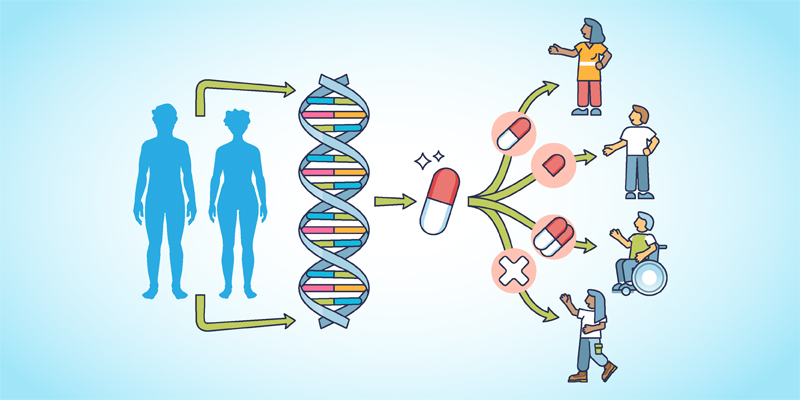In the rapidly advancing field of cancer treatment, precision oncology is a beacon of hope. Unlike traditional methods that apply the same treatment to all patients with the same type of cancer, precision oncology tailors therapies based on the unique genetic and molecular profile of each tumor. This personalized approach is transforming how we diagnose and treat cancer, offering more effective and targeted solutions.
Historically, cancer treatment followed a one-size-fits-all model, using methods like chemotherapy and radiation based on the cancer’s location and stage. While these treatments are crucial, they often come with significant side effects and varying success rates because they do not account for the unique molecular differences of each tumor. Precision oncology changes this by focusing on the specific genetic makeup of the cancer, allowing for more targeted and effective therapies.
For example, in lung cancer, traditional treatments might treat all non-small cell lung cancer patients the same way. Precision oncology, however, reveals that tumors within this category can have different genetic mutations. One patient’s cancer might be driven by an EGFR mutation, requiring a specific targeted approach, while another might have an ALK mutation, needing a different strategy. This ensures that each patient receives the most effective treatment for their specific cancer type. Breast cancer treatment has also seen significant advancements. Today, therapies are tailored based on the tumor’s hormone receptor status and HER2 protein presence, leading to more personalized care and improved outcomes.
It has also transformed treatment approaches for many other cancers, including colorectal, stomach, biliary, melanoma, ovarian, prostate, urinary bladder and blood cancers.
At the heart of precision oncology is the advancement of molecular testing. Modern molecular tests can quickly and accurately identify a range of genetic mutations and markers in a tumor’s DNA, enabling doctors to diagnose cancers more precisely and select the most effective treatments. This has paved the way for the development of new targeted therapies and immunotherapies that attack cancer cells based on their specific genetic mutations.
Immunotherapy, which leverages the body’s immune system to fight cancer, has also greatly benefited from precision oncology. Certain genetic markers can predict a patient’s response to these treatments, making them more effective for those with specific tumor profiles.
In summary, precision oncology represents a monumental shift in cancer care. By moving away from generalized treatment methods and focusing on the unique genetic and molecular makeup of each patient’s cancer, it offers the promise of more effective, targeted and precise treatment.

